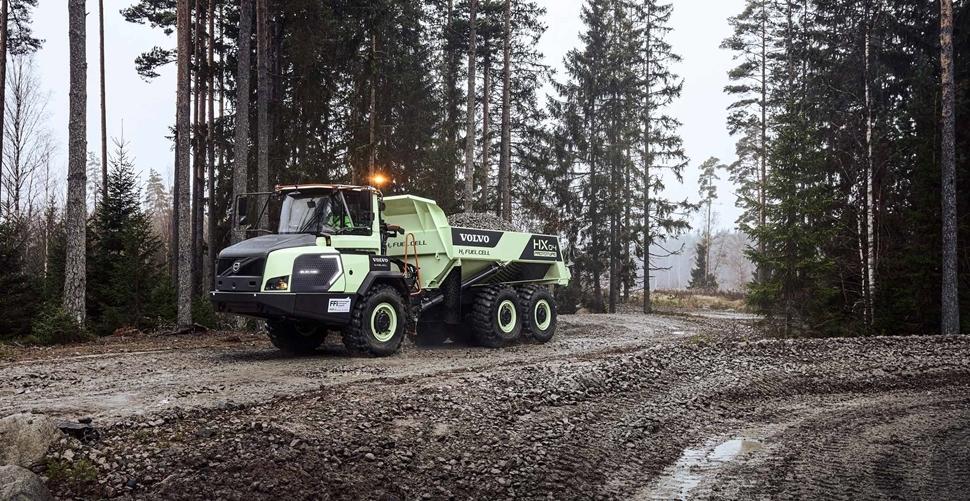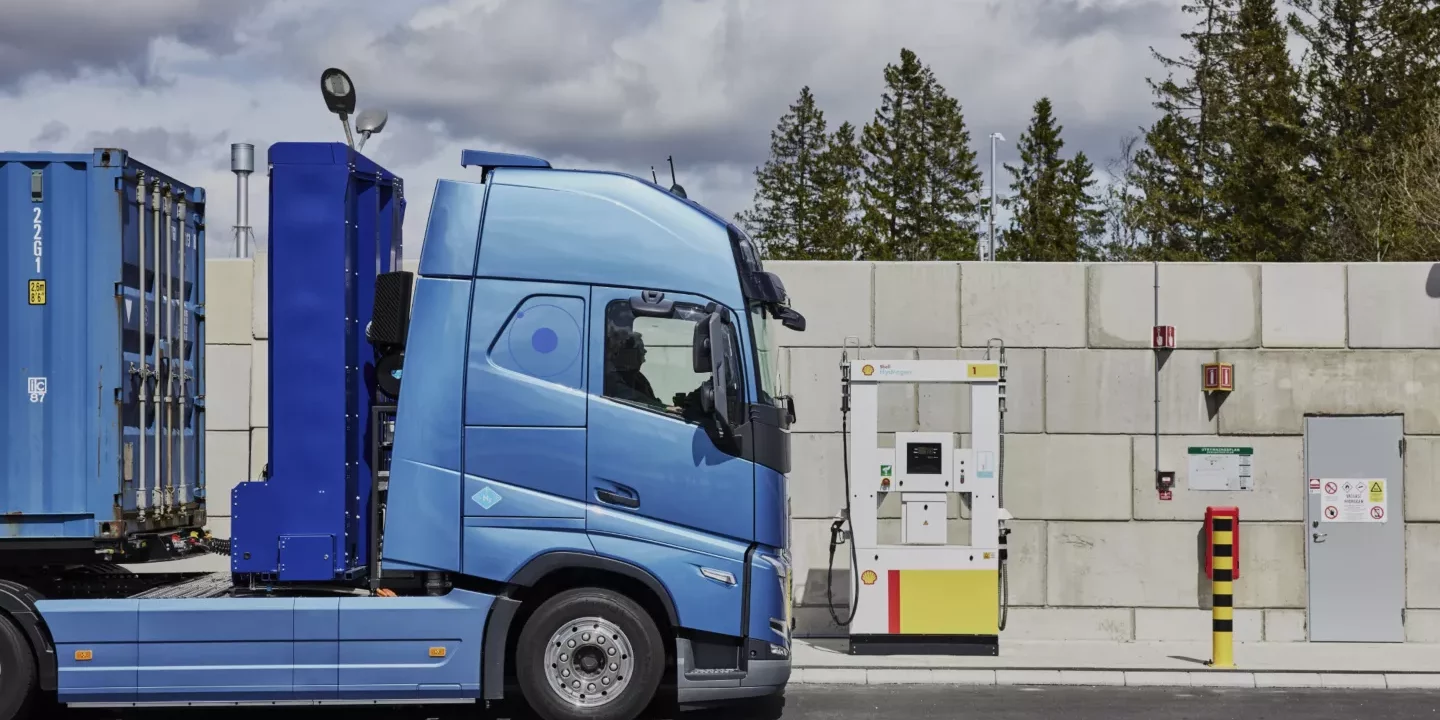To decarbonize transport, Volvo Trucks already offers battery electric trucks and trucks that run on renewable fuels, such as biomethane. In the second half of this decade, a third CO2-neutral option will be added to its product portfolio – fuel cell trucks powered by hydrogen. Volvo has started to test vehicles with this technology. Customer pilots will start in a few years from now and commercialization is planned for the latter part of this decade.
“We have been developing this technology for some years now, and it feels great to see the first trucks successfully running on the test track. The combination of battery electric and fuel cell electric will enable our customers to completely eliminate CO2 exhaust emissions from their trucks, no matter transport assignments,” said Roger Alm, President of Volvo Trucks. “Hydrogen-powered fuel cell trucks will be especially suitable for long distances and heavy, energy-demanding assignments. They could also be an option in countries where battery charging possibilities are limited.”
The hydrogen fuel cell trucks, which only emit water vapor and produce their own electricity onboard, will have an operational range comparable to many diesel trucks – up to 1,000 km – and a refueling time of less than 15 minutes. The total weight can be around 65 tons or even higher, and the two fuel cells have the capacity to generate 300 kW of electricity onboard.
The fuel cells will be supplied by cellcentric – the joint venture between the Volvo Group and Daimler Truck AG. Cellcentric will build one of Europe’s largest series production facilities for fuel-cells, specially developed for heavy vehicles.
Fuel cell technology is still in an early phase of development and there are many benefits with the new technology, but also some challenges ahead. One of them is large-scale supply of green hydrogen (produced by using renewable energy sources, such as wind, water and sun). Another is the fact that refueling infrastructure for heavy vehicles is yet to be developed.
“We expect the supply of green hydrogen to increase significantly during the next couple of years, since many industries will depend on it to reduce CO2. However, we cannot wait to decarbonize transport, we are already running late. So, my clear message to all transport companies is to start the journey today with battery electric, biogas and the other options available. The fuel cell trucks will then be an important complement for longer and heavier transports in a few years from now”, added Alm.

Volvo CE trials the world’s first prototype hydrogen articulated hauler
Volvo Construction Equipment (Volvo CE) continues acting on its commitment to drive change towards a net-zero future. Following the completion of a multi-stakeholder research project aimed at breaking new ground in hydrogen technology, the company has started testing of the world’s first fuel cell articulated hauler prototype, the Volvo HX04. The results of the project will provide important insights into the possibilities provided by hydrogen and fuel cells as Volvo CE continues research for its future product development programs.
“Being inventors of the world’s first articulated hauler more than 55 years ago, we are happy and proud to again drive change with this fuel cell hauler concept. While an early prototype, this innovation will give valuable insights into the opportunities of hydrogen in the energy transformation. We believe that by exploring multiple technologies and working in partnership we can create the best path forward to decarbonize the construction industry,” said Carolina Diez Ferrer, Head of Advanced Engineering Programs at Volvo CE.
The Volvo HX04 is the result of a research project running between 2018 and 2022, with funding from FFI, a national collaboration between the Swedish Innovation Agency VINNOVA, Swedish Energy Agency and Swedish Transport Administration, to support sustainable vehicle strategic research, innovation and development. Partners include Volvo CE, RISE Research Institutes of Sweden, who provided specialist competence on driveline development and safety, and PowerCell Sweden, a developer of fuel cell-based hydrogen-electric power solutions.
The development and building of the six-wheel prototype has largely been carried out at Volvo CE’s facility in Braås, Sweden – the same location where Gravel Charlie, the world’s first articulated hauler, was born back in 1966. Engineers at the Technology Center in Eskilstuna, Sweden, have contributed with software development and knowledge gathered through its fuel cell test lab. While not commercially available, valuable insights from the concept will inevitably inform future production.
Infrastructure for hydrogen is still in development, which means refueling the Volvo HX04 is an important aspect to solve in the project. Shell installed a state-of-the-art hydrogen refueling station at the Volvo CE test track in Braås. Both Shell and Volvo Group are founding members of H2Accelerate, a collaboration of companies working to foster conditions for the mass market roll-out of hydrogen trucks in Europe.
“Providing the fueling infrastructure for this innovative project gave Shell the opportunity to demonstrate our technical capabilities in hydrogen, and enabled us to support one of our key global collaboration partners in taking another step forward in their decarbonization journey, which goes to the heart and intent of Shell’s Powering Progress strategy,” commented Oliver Bishop, Shell’s General Manager for Hydrogen Mobility.







